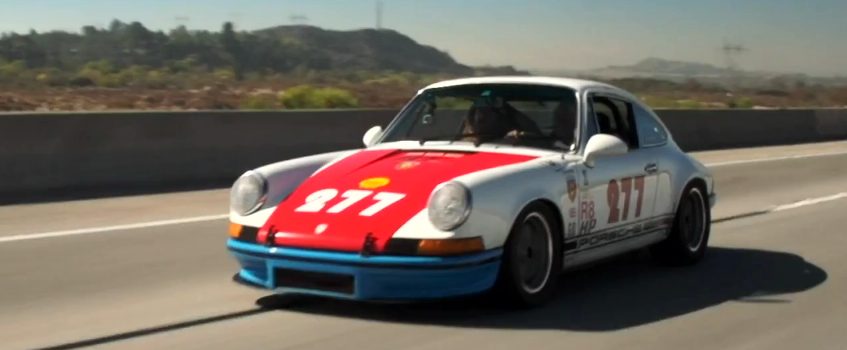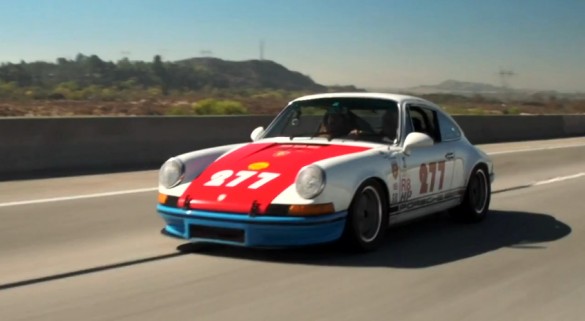Magnus Walker builds first-generation Porsche 911’s with an artist’s eye and a racer’s sensibility. Parts that can be lightened without compromising strength are drilled, while details that allow an aero advantage (like integrated turn signals) are built into the design. If a part from one year or one model looks good, Walker will incorporate that into other cars under construction.
While Porsche purists may cry “foul,” we support Walker 100-percent. In our eyes, the man is a mechanical and artistic genius, doing what he can to improve the handling, look and driveability of cars that were designed to be driven, not stored in hermetically-sealed environments awaiting appreciation.
The short film on Magnus Walker, entitled “Urban Outlaw,” caught Jay Leno’s eye, so the comedian and car guru invited Walker by for a visit with one of his favorite “streetable race cars,” a 1971 Porsche 911T. Updated with a 2.4-liter flat-six engine, good for around 180 horsepower, the car delivers the kind of performance you can use every time you get behind the wheel. Going fast means pushing the car hard, but isn’t that the point of a sports car in the first place?
The more complex and isolated new cars get, the more we’re drawn to cars like Walker builds. There’s beauty in their mechanical simplicity, and peace of mind in their lack of computers and sophisticated electronics. Sure, today’s sports cars are faster, but we can’t help wonder if they’re as enjoyable as Walker’s mechanical masterpieces.




